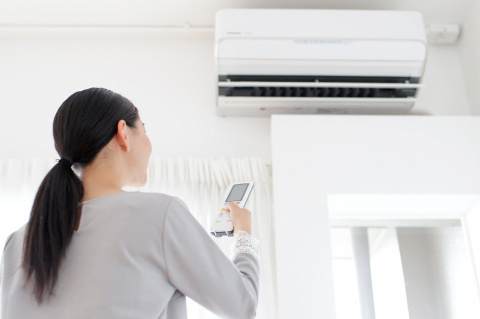Central air conditioning is not just a luxury in many parts of the country. In fact, it has been a key factor in the development and population boom in many warmer areas since it makes even the most intolerable heat and humidity more comfortable. While some smaller homes may be effectively cooled with portable AC units, central air conditioning provides a cost effective, highly efficient way to keep indoor temperatures reasonable without driving energy bills to astronomical heights. Central air conditioning in Hampton isn’t a mere luxury for many, but is rather a key to a healthy, comfortable lifestyle.
If you’re considering central air conditioning installation in Hampton, GA, there are some things you need to consider before purchasing a system and hiring a crew to install it. There are some factors you can think about that will help you select the best unit for your space and make your investment last for its maximum service life. Keep reading to learn a few things you should know if you’re thinking about installing central air conditioning in your home.

The Right Size
Sizing is a critical consideration when picking a central AC unit because it will not only impact the comfort of your home, but it will also play a role in energy expenditures. If you choose a unit that is too small for your space, you risk high energy bills, inefficient cooling that struggles to reach target temperatures, and elevated humidity which can wreak havoc on your home’s interior.
Pick a unit that’s too large, and it will use more energy than necessary and create humidity problems of its own through infrequent cycling. Therefore, picking the right size is key. AC size is measured by the ton. For example, a one-ton unit has the cooling power of a one-ton block of ice. The average 2,000 square-foot home requires upwards of 3 tons of cooling power in warmer climates. It’s best to have an expert help you in figuring the proper AC load and size, as it’s directly related to your square footage, style of home, and other environmental factors.
SEER Rating Is Important
The SEER rating, or Seasonal Energy Efficiency Ratio, of your air conditioner is also something you should understand. This rating determines the energy efficiency of an AC unit. In other words, it calculates how much cooling power is produced per watt of energy consumed. Most states require that the SEER of an air conditioning unit is at least 14, but 16 SEER and 24 SEER rated units are available as well. However, that increased efficiency comes at a higher initial cost. Despite that higher upfront price point, it still could make sense for you to opt for a higher SEER rating. A more efficient unit will save you considerable money on energy bills. Also, installing a more efficient unit may land you some state or federal credits or rebates as well.
Duct Misconceptions
While the average air conditioning unit may be replaced every 10-15 years in warm climates, the ducts in your home are upgraded much less frequently. However, even the best AC unit may struggle to efficiently cool a home with old leaky ducts, so before you install a new unit it only makes sense to have the ducts inspected and sealed. If the ducts are beyond recovery, you can either opt to have new ductwork installed or choose an AC unit that includes a ductless system such as a split system. The bottom line is that if you have ducts, they need to be in good shape to give you the maximum cooling benefit offered by your AC unit.

If you’re considering the installation of a central AC system, it’s a good idea to consider these factors before making that investment. To learn more about the things you should know before installing central air conditioning, visit Omega Heating & Air.


